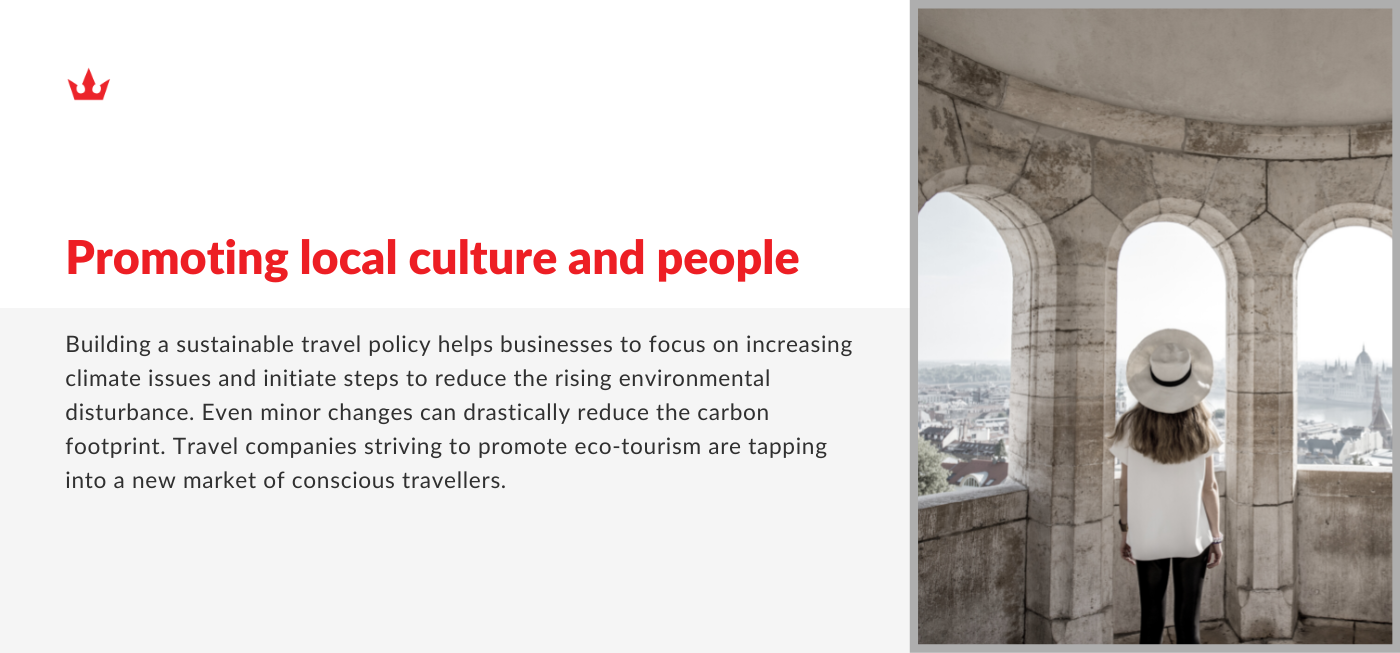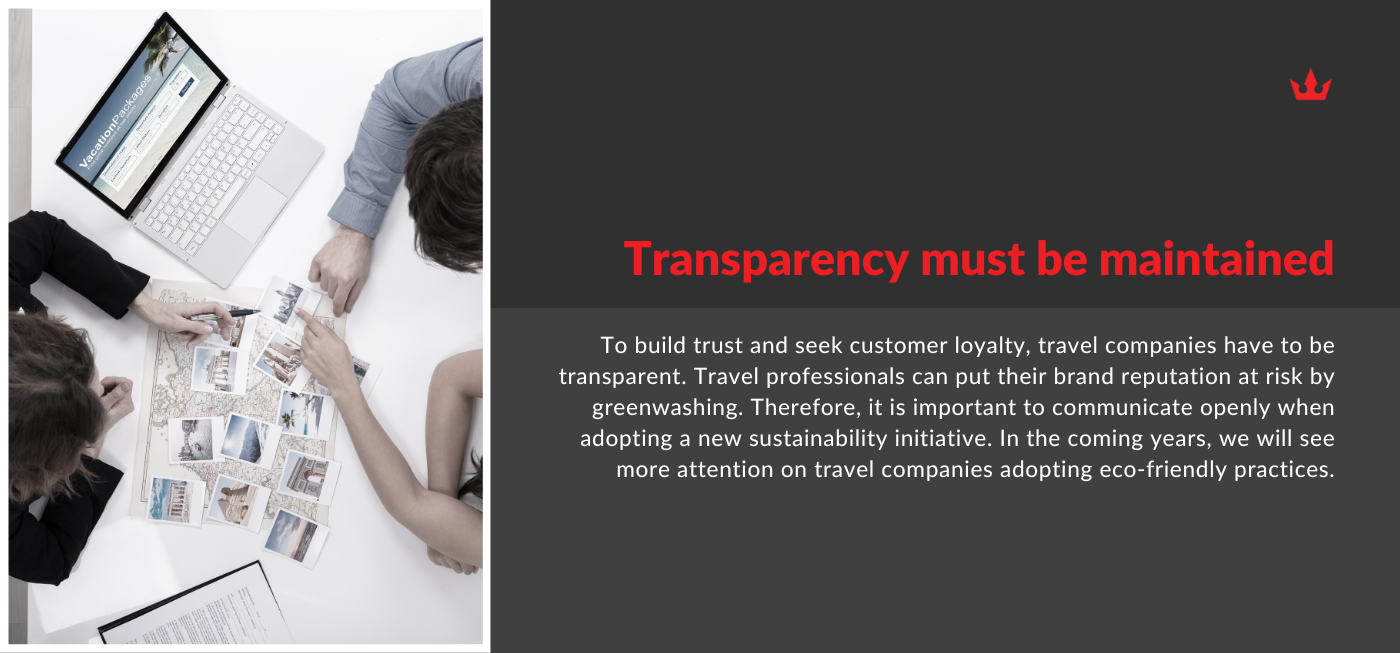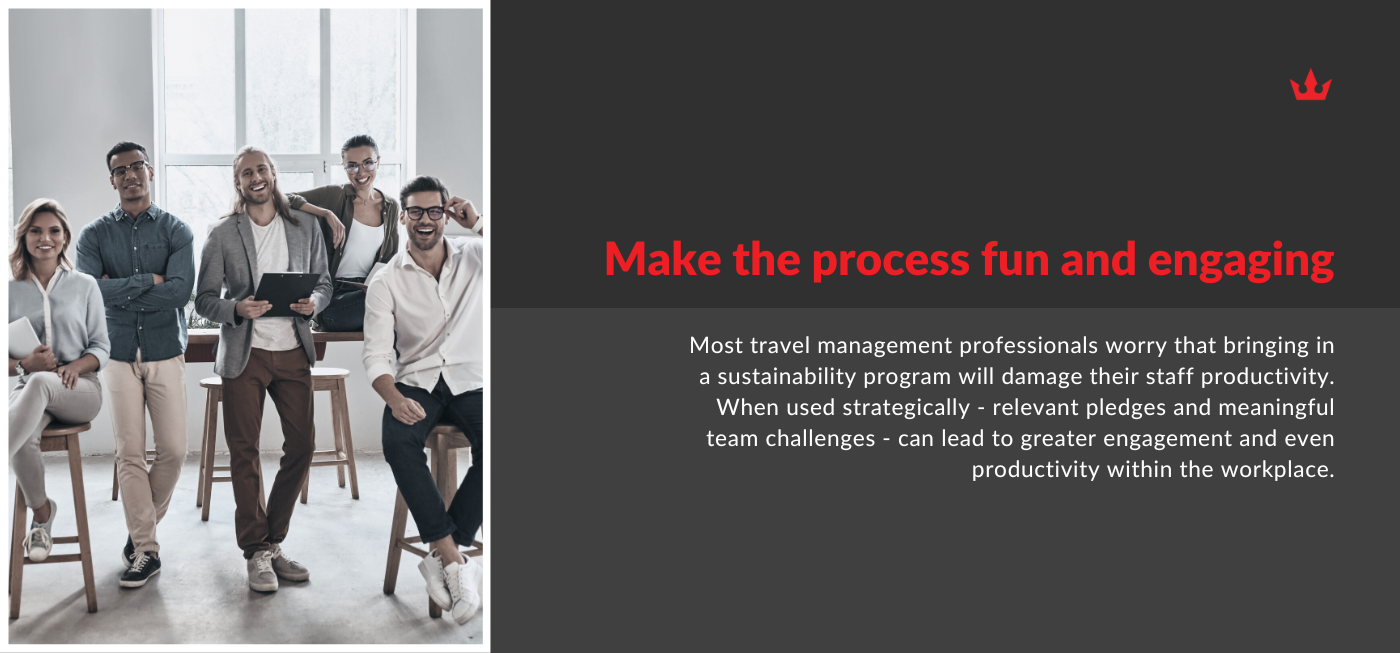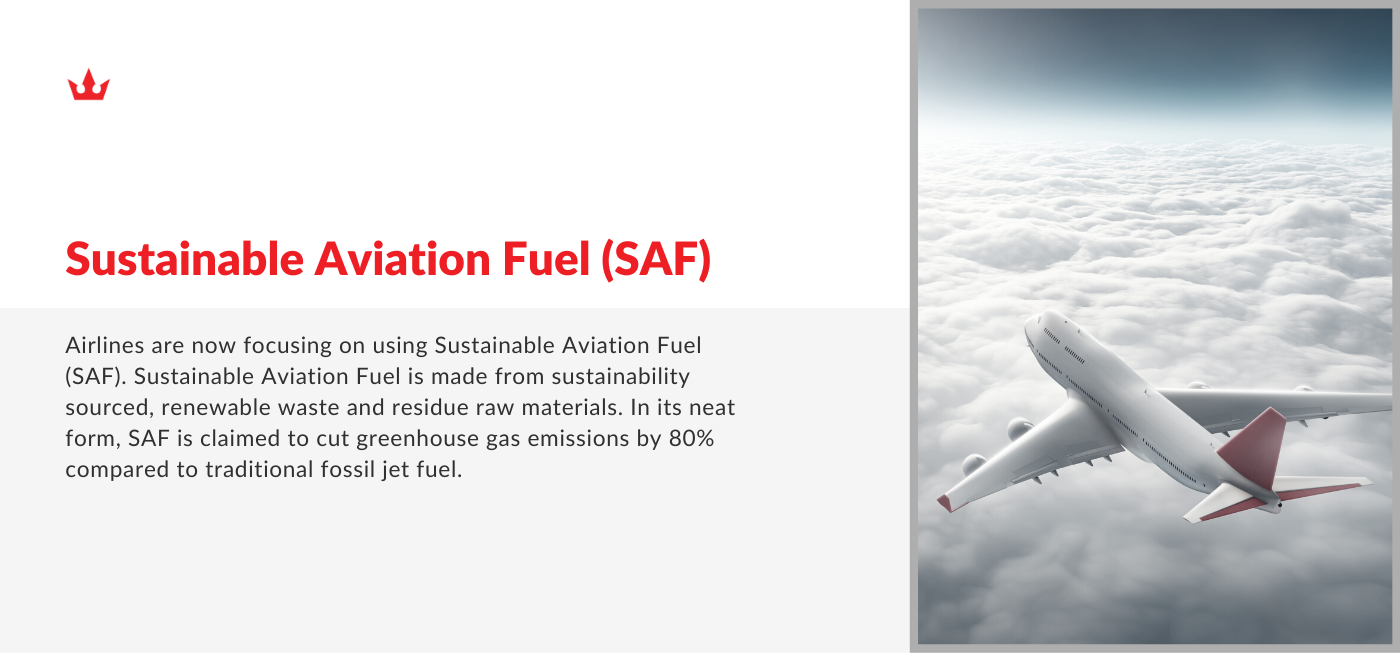Travel companies are looking for ways to address sustainability issues in the workplace. According to the Business Travel News Europe (BTN) article, almost half of the UK businesses (47%) have a sustainability policy- compared with 35% of French firms, 13% of Spanish firms and 18% of German firms.
Travel is essential - opening minds, helping people build trust, and encouraging people to do business together. Travel helps clients to foster personal interactions and even build relationships in the long run. Corporate travel can even help businesses unlock new opportunities.
Companies like Responsible Travel, AndBeyond, and Kynder - among others - use sustainability as a Unique Selling Proposition (USP) focusing on the significance of local culture and local people. In 2022, travel and tourism have contributed 10.9% to the growth of the national GDP.
This month, Technomine Travel Solutions will focus on trends in sustainable business travel. Though awareness about sustainable travel is increasing, travel companies are still a long way from adopting truly eco-friendly practices daily. Keep scrolling to see how some travel companies are approaching the issue of sustainability while staying authentic.
As more and more people recognise the need for sustainability in travel, eco-tourism can sometimes get a backlash due to greenwashing practices. Here are some travel organisations that are adopting some interesting practices.

Responsible Travel has led the way in eco-friendly holidays and eco-tourism since 2001. This eco-friendly company has over 5,000 adventures on offer to destinations all over the world. The company focuses on promoting local culture and local people, making sure the clients? money goes to independent businesses & supporting animal conservation. You can read more about the initiative taken by Responsible Travel here.
Building a sustainable travel policy helps businesses to focus on increasing climate issues and initiate steps to reduce the rising environmental disturbance. Even minor changes can drastically reduce the carbon footprint. Travel companies striving to promote eco-tourism are tapping into a new market of conscious travellers.
AndBeyond, a luxury sustainable safari tour operator, goes beyond investing back to the local environment. The company has recently installed an electrical microgrid which decreases the need for a generator. Not only this, but AndBeyond is also looking for ways to install water bottling plants. By investing in modern technologies, travel companies can look after the land, local people, and wildlife without hampering the environment.
Recently, there was a great article in Travel Weekly about how travel businesses can adopt sustainable practices. Take a look at a few of these ideas.
Travel companies are starting to adopt climate-friendly practices
However, travel professionals also need to consider the logistical feasibility and financial viability of said sustainable practices. The following questions might help when considering building a sustainable travel policy.

To build trust and seek customer loyalty, travel companies have to be transparent. Travel professionals can put their brand reputation at risk by greenwashing. Therefore, it is important to communicate openly when adopting a new sustainability initiative.

Sustainability. Climate Action. Green Revolution.
These are the catchphrases of today that most social media users are excited about. Most travel management professionals worry that bringing in a sustainability program will damage their staff productivity. However, when used strategically - relevant pledges and meaningful team challenges - can lead to greater engagement and even productivity within the workplace. Not to mention that this is a great employer branding strategy as well.

According to the reports presented by International Air Transport Association (IATA), aeroplanes contribute to 2.5% of the world's total greenhouse gas emissions. Therefore, travel companies should find alternative ways to fly to promote sustainable and responsible tourism.
The good news is that airlines can now focus on using Sustainable Aviation Fuel (SAF). Sustainable Aviation Fuel is made from sustainability sourced, renewable waste and residue raw materials. In its neat form, SAF is claimed to cut greenhouse gas emissions by 80% compared to traditional fossil jet fuel. What a revelation, isn't it!!
In 2022, Virgin Atlantic is stepping up the use of SAF with the supply of 2.5 million litres to Heathrow in the first half of the year. The airline corporate development vice president Holly Boyd-Boland focuses on promoting emission-free aviation with the help of SAF, particularly in the UK. Not only this, but British Airways and its sister airlines aim to net zero emissions by 2050.
As per the statistics presented by Booking.com, 61% of travellers state that the pandemic has made them want to travel more sustainably. Moreover, 91% of the public wishes to see the brands ?show by example? and demonstrate their actions to support the planet.
Even though some travel companies have started working towards sustainability goals, there is still a long way to go when making these practices a daily reality. In the coming years, we will see more attention on travel companies adopting eco-friendly practices.
Building a sustainable travel policy can offer your travel business a competitive edge in a saturated travel market. Subscribe to our blog to read more newsworthy articles from the world of travel management and virtual support.
Make optimal use of environmental resources
Respect the socio-cultural authenticity of the host communities
Ensure viably, long-term economic operations
Environmental sustainability
Social sustainability
Economic sustainability
Technomine Travel Solutions are here to help and grow your business in these unprecedented times. We can support your business continuity, improve efficiency, reduce overheads and make your business more agile for the challenges ahead.
Technomine Travel Solutions are here to help and grow your business in these unprecedented times. We can support your business continuity, improve efficiency, reduce overheads and make your business more agile for the challenges ahead.